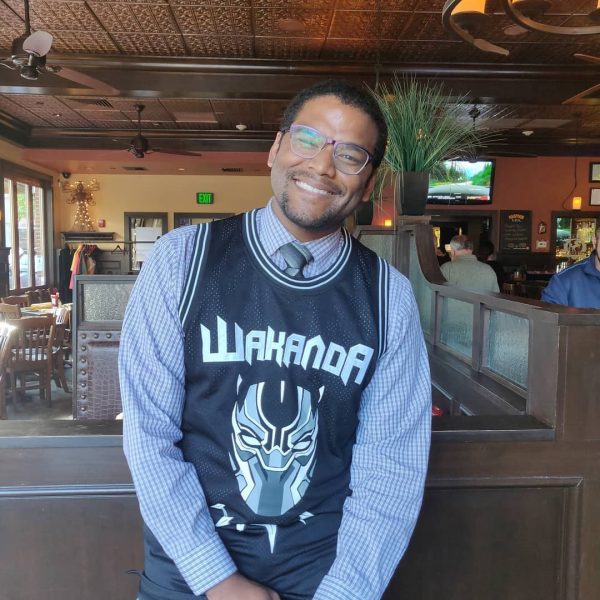Overtime
Students grapple with the time commitment of the longstanding sports requirement
Neil Zhu (‘25), pictured at the top of Black Mountain, has been cycling for three years. He is “glad that Bishop’s [gave him] the opportunity to continue [his] hobby” by allowing him to receive a sports credit for his cycling.
Will I have enough time for my homework? Can I be on varsity this year? Are office hours really necessary? These questions may seem unrelated, but they all have one thing in common: they can all be spurred by discussions surrounding Bishop’s sports and the Physical Education (PE) requirement.
The requirement for upper school — two PE credits, or two seasons of a sport or activity, for everyone except seniors — has long been a subject of debate, and for good reason. There are pros and cons to having a requirement, something the coaches and students alike are acutely aware of.
The coaches “believe that part of wellness is the kids moving and being active,” explained Chair of Physical Education and Health Coach Meghan Carr, “because your brain can’t work if your heart doesn’t work.” Director of Student-Athlete and Coaching Development Mr. Shane Walton echoed this sentiment, clarifying that the PE requirement is meant to enable kids who might otherwise be less active to “get their blood flowing and their heart rate up” and to encourage physical fitness.
But that isn’t the only function of sports; in fact, many studies have shown that they can be just as effective at improving mental well-being as physical health. According to Harvard Health, engaging in exercise can relieve anxiety by diverting your attention from what you are anxious about, decreasing muscle tension, increasing the availability of serotonin, and activating frontal regions of the brain which helps control our reacting system to real or imagined threats.
Despite these benefits, however, some students think that the requirement to participate in sports may result in the opposite of the desired effect. A time commitment for sports, in addition to homework and extracurriculars, can be overwhelming for students. Chloe Shiue (‘24), who participates in kung fu outside of school and played for the Bishop’s Field Hockey team her sophomore year, described her experience on the team as fun but tiring. She said she “would be too drained after practice or a game to focus on homework,” and added that “whenever [she] had free time, [she] was just doing homework.”
This is a pervasive feeling among students: appreciative of sports, but exhausted by them. As Riley Lincoln (‘25), a Varsity Girls’ Volleyball player, put it, “the time commitment can be a lot for people, especially since Bishop’s is such an academic school.” With such an emphasis on academic excellence, it can be difficult to carve out time for sports; and if students are able to, “It’s just hard to manage both aspects of your life,” Riley said.
But many students can also see the benefits of the sports requirement; even those who think it also causes some stress and fatigue. Chloe, in addition to commenting on how tiring on-campus sports can be, also mentioned that they are “a good break from school” and an opportunity to try something new.
Celeste Oder (‘26), who sails both for the school and for the Coronado Yacht Club, emphasized the advantages of sports by saying she’s “noticed that [she’s] a lot calmer and happier after sailing. It’s almost de-stressing.”
This might not be the effect of exercise for everyone, however, which is why students have their own opinions about how the requirement should be handled. Tyler Boynton (‘24), a football and baseball player, expressed that “the sports requirement should be a little bit more laid back. It’s a little bit strict at the moment and it really takes away from the academic experience.” Riley also suggested that the requirement be adapted from two credits to one credit.
The coaches have a response to students’ suggestions, though; as Coach Carr explained, “You can get your PE credit through a number of different ways,” many of which are not as physically demanding or time-consuming. She elaborated, saying that seasonal sports, optimal performance, general fitness, Advanced Theatre Production (ATP), dance, and yoga all qualify for a PE credit, and students should choose those that best fit their schedules and make them happiest.
Not all students may be happy with the sports requirement, but it appears that it will remain in effect for a while longer, as no efforts to change it have been attempted. And while it’s still in place, coaches continue to urge students to try new sports that interest them and continue with those that make them happy.

Lucy is a senior and Lead Content Editor for The Tower. This is her fourth year on the staff and second on the editorial team, and she can’t wait to...


![Neil Zhu (‘25), pictured at the top of Black Mountain, has been cycling for three years. He is “glad that Bishop’s [gave him] the opportunity to continue [his] hobby” by allowing him to receive a sports credit for his cycling.](https://thebishopstower.com/wp-content/uploads/2022/11/EFE43564-F99E-4F51-ABBA-02CB5A95EDF3-900x506.jpeg)



